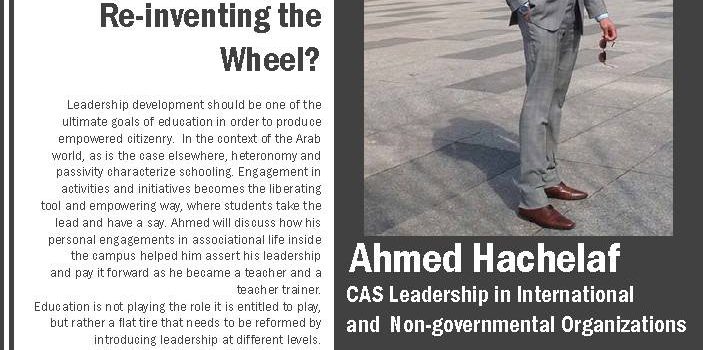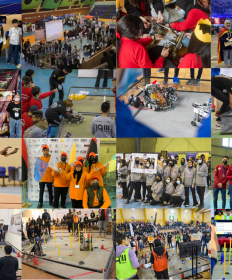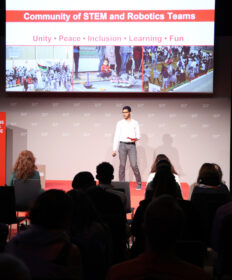https://www.youtube.com/watch?v=vhG4NkxENcQ&t=1987s
Ahmed Abdelhakim Hachelaf gave a presentation to Syracuse University’s Maxwell School of Citizenship on Youth leadership development.
In this presentation Ahmed states that local and International NGOs are trying to develop leadership in youth. They often start from ground zero by training NGO leaders on basic skills. The impact in this case is limited in scope and costly. He adds that any other approach to youth development that neglects the school is a futile try to re-invent the wheel.
If our educational system is a flat tire, we need to fix it saving time, effort and money in the process. We don not have to throw the baby with the basket water, do not throw the flat wheel with the expandable parts. This is all the more true when we think of education as the engine of change and not simply a wheel. This would render leadership not only the privilege of the few but the practice of all.
Schools and classrooms are small societies that reflect and shape the bigger societies students grow into. In school, the generation contains next political leaders, business managers, teachers, doctors, parents, factory workers and others who build our economies and solve our social and political problems. The schools can equip them with machinery for diagnosing, problem posing, problem solving, decision-making, and evaluating among other skills that could apply to different problems and different contexts. On the other hand, school age is the perfect period to develop skills.
Thus, adaptability, creativity, intuitive knowledge, decision making and risk taking , independent thinking, critical action and high intra-personal and interpersonal skills are all required…. Leadership is the amalgam of all these skills.
In this talk, Ahmed suggests a model for the transferability of leadership skills from teachers – who should be conceptualized and trained as such, to learners who should apprentice leadership in a way akin to professional apprenticeship.



